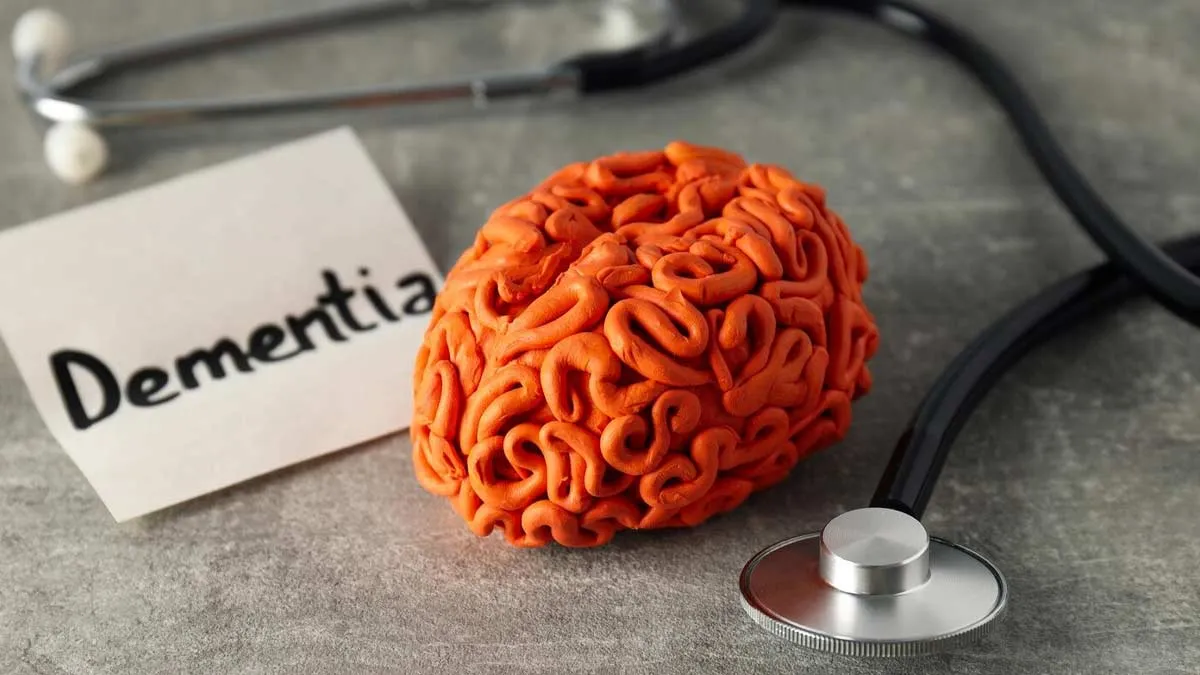
Dementia isn’t a single disease—it’s a general term for the decline in memory, decision-making, and thinking that interferes with daily life. And while age remains the biggest risk factor, it’s not the only one.
Table of Content:-
CHECK YOUR
MENTAL HEALTH

The Centers for Disease Control and Prevention (CDC) identifies several lifestyle and health-related factors that can greatly raise your chances of getting dementia. What’s hopeful is that many of these factors are in our control. Therefore, if we understand them early, we may be able to lower the odds of cognitive decline later in life.
We spoke to Dr Dipesh Pimpale, Consultant Neurology, KIMS Hospitals, Thane, who explained risk factors for dementia.
What Are The Risk Factors For Dementia?
Here’s a breakdown of the CDC-identified risk factors and their contributions to dementia.
1. Lack of Physical Activity

You must be familiar with this phrase, "Sitting is the new smoking". But when it comes to brain health, staying sedentary does more than weaken your muscles. Physical inactivity has been linked to faster cognitive decline and a higher risk of dementia.
"Exercise enhances the blood flow to the brain, promotes the formation of new neural pathways, and inhibits inflammation. Even low-key activities, such as brisk walking, swimming, or dancing 30 minutes per day, can make a big difference. You should also engage in yoga and meditation to reap additional benefits. It's not having to be a gym rat; it's just moving more, more frequently," said Dr Pimpale.
2. Uncontrolled Diabetes
Diabetes not only impacts your pancreas; it also has serious consequences for your brain. Individuals with unstable blood sugar levels have a much higher chance of developing dementia, including Alzheimer's disease.
This is because high blood sugar damages blood vessels throughout the body, including those in the brain. It can also lead to insulin resistance in the brain, which disrupts memory and cognitive function. Managing diabetes through medication, diet, exercise, and regular monitoring is a crucial step in reducing dementia risk.
Also Read: Finding The Right Words: Communicating With A Parent Living With Memory Loss
3. High Blood Pressure

Hypertension is also referred to as the 'silent killer,' but it may also be quietly damaging your brain. Research indicates that experiencing high blood pressure, particularly at midlife, doubles the likelihood of developing dementia in the future.
Over time, high blood pressure can weaken arteries and limit blood supply to the brain, causing small strokes, white matter lesions, and structural changes to the brain. All of this adds up to memory issues and cognitive decline.
Maintaining your BP under control through lifestyle modifications and drugs, if necessary, is not only good for your heart but for your brain as well.
4. Diet
"A poor or imbalanced diet, particularly one low in essential nutrients like Vitamin B12, has been linked to a higher risk of cognitive decline and dementia. And this concern is especially relevant in pure vegetarian or vegan populations, where B12 deficiency is more common since this vitamin is naturally found in animal-based foods like meat, eggs, and dairy," said Dr Pimpale.
Vitamin B12 is vital for maintaining the health of nerve cells and red blood cells, and it plays a crucial role in brain function. When the body lacks B12, it can lead to symptoms like memory lapses, confusion, and even mood changes, many of which overlap with early signs of dementia.
The good news is that this type of cognitive decline is often reversible if caught and treated early through supplements or dietary changes.
Also Read: Can An Eye Test Detect Dementia Risk In Older Adults? What An Expert Reveals
5. Tobacco and Alcohol Use

Both smoking and heavy drinking have been shown to destroy blood vessels and cause inflammation, two of the big drivers of cognitive decline.
Smoking specifically decreases oxygen to the brain and raises oxidative stress. While chronic alcohol abuse can result in alcohol-use disorder, dementia and atrophy in regions of the brain involved in memory and learning," added Dr Pimpale.
The CDC suggests stopping smoking cold turkey and reducing alcohol to no more than a drink a day for women and two for men to help protect long-term brain health.
Bottomline
Dementia isn’t always preventable, but according to the CDC, nearly 45% of dementia cases could potentially be delayed or prevented by addressing these modifiable risk factors. The best part is that you don’t have to make sweeping changes overnight.
[Disclaimer: This article contains information provided by an expert and is for informational purposes only. Hence, we advise you to consult your professional if you are dealing with any health issue to avoid complications.]
Also watch this video
How we keep this article up to date:
We work with experts and keep a close eye on the latest in health and wellness. Whenever there is a new research or helpful information, we update our articles with accurate and useful advice.
Current Version